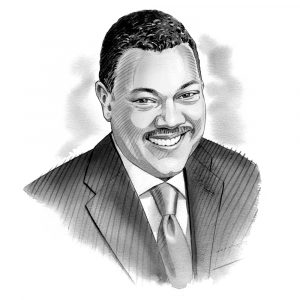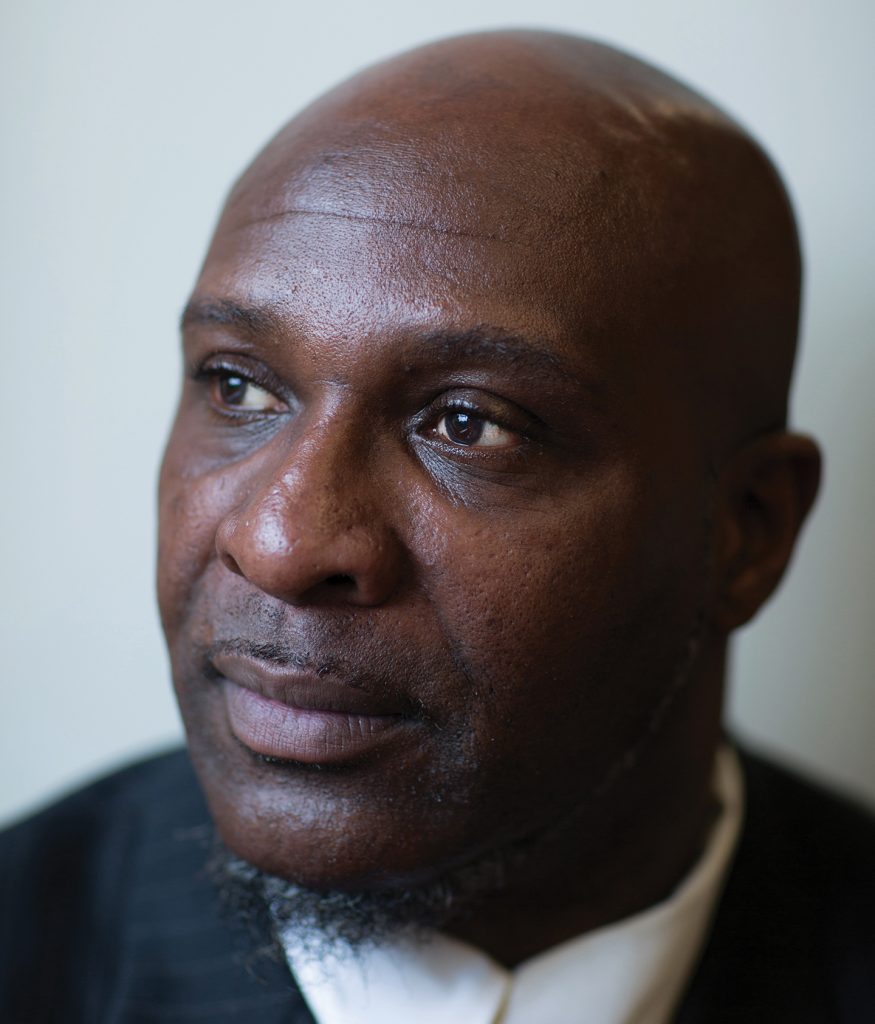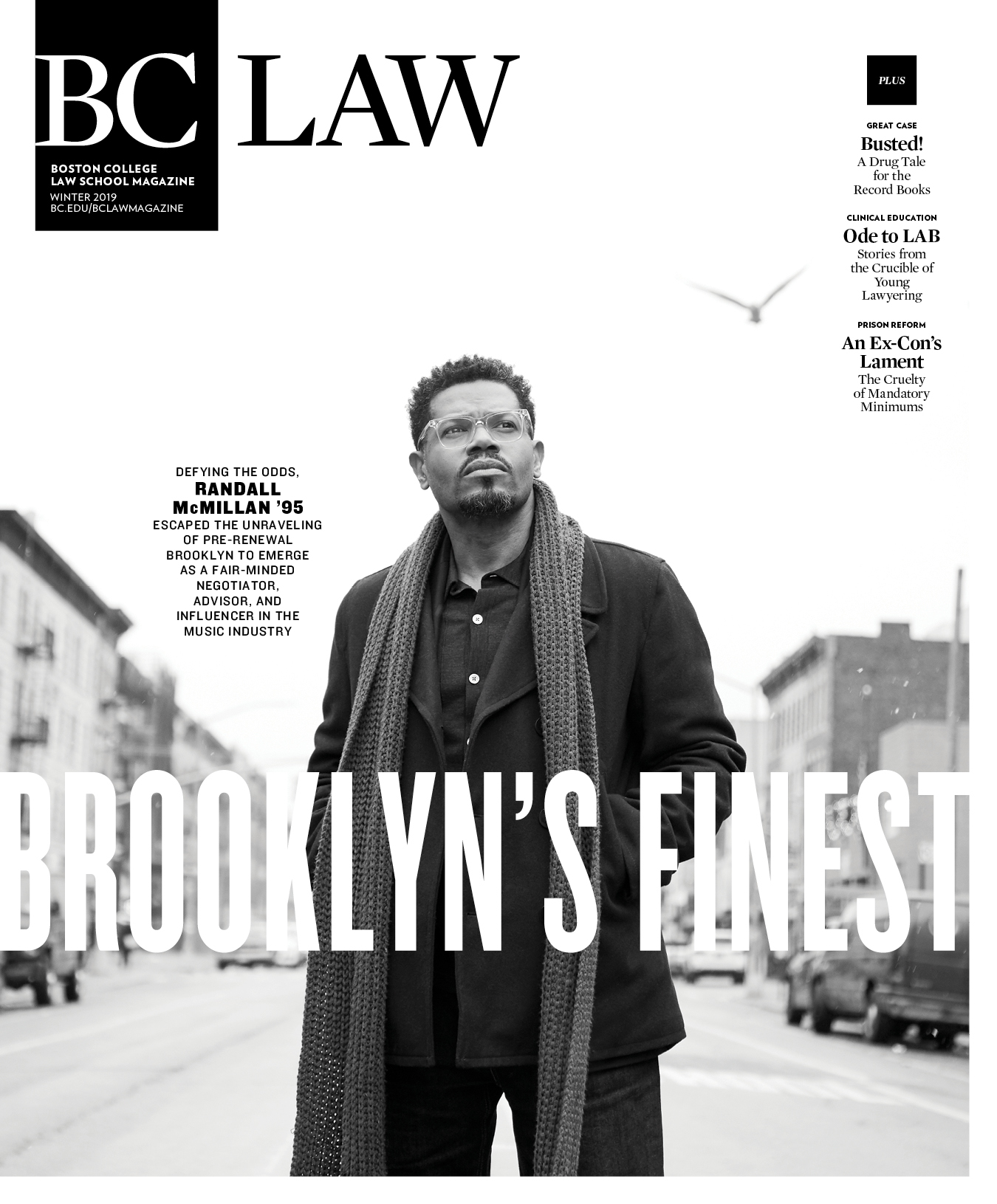Donnell Wright spent five-and-a-half years in prison for a 2004 drug arrest. Although he was a model prisoner and obtained a bachelor’s degree while incarcerated, he could not find a job when released. He became involved in an organization called Jobs Not Jails and an activist for prisoners’ rights. Now, at age fifty-four, he is a social worker with the Massachusetts Executive Office of Health and Human Services. Wright and Dean Rougeau discussed mandatory minimum sentences and second chances for prisoners.

VR: There is a broad sense that our criminal justice system is failing, that it does not function effectively. Our incarceration rates are among the highest in the developed world. Social, political, and economic issues have driven us to this point, but the dysfunction now concerns liberals and conservatives alike. If there’s anything hopeful in this scenario, perhaps it’s that people on both sides of the aisle see a problem.
DW: The criminal justice system hasn’t kept up with changes. Due to the opioid crisis, things got so bad so fast. There was no blueprint from when crack cocaine hit. Everybody just allowed crack to devastate our communities, and no one took seriously rehab programs due to the ethnicities affected: African-Americans and Hispanics. Sentencing guidelines for crack cocaine were much harsher than the sentencing guidelines for powder cocaine, even though it’s the same exact drug.
VR: We’ve seen that mandatory minimum sentences do not work. They’re overbroad for the most part. Judges don’t like them. Our system of justice relies heavily on the notion that the judge is supposed to have discretion. To rob a judge of his or her ability to use discretion is undermining a core value of the common law tradition.
DW: The judge in my case did not want to send me to prison. He told me, “Mr. Wright, if it were not for minimal mandatory sentencing, you would not be going to prison today. You have done everything we have asked you to do. Unfortunately, the crime that you committed carries a minimal mandatory sentence, and I would not be carrying out my sworn duties if I did not send you to prison. But going to prison doesn’t necessarily have to be a bad thing. It depends on you.” And I didn’t understand that then. But I do today.
VR: This is exactly the point I was trying to make. Why would you take the discretion away from that judge to do what he or she knew was appropriate in the circumstance? Kudos to you for your ability to succeed under the circumstances, but think of all the people who for whatever reason get sucked into the horrors that prisons represent in our society.
DW: I don’t want to make it seem that I am anti-police or anti-correction because I’m not. I was guilty. I’m just saying that if a person has shown a propensity toward rehabilitation, continue that. Don’t abruptly stop and say, “We’re going to lock you up now.”
VR: BC Law is piloting a Project Entrepreneur program with a course that teaches students how to help prisoners transitioning out of incarceration to develop the skills to start their own businesses. We know it’s difficult for them to get jobs, so perhaps if they can be entrepreneurs—where they’re working for themselves—they can gain the economic independence to move back into society.
DW: Yes! Some of the smartest guys I have ever met are in prison. They just used [their intelligence] in the wrong way for the wrong reasons. Some of them have substance-abuse problems. Some have gambling problems. Some are just criminally minded. And I’ve learned that just because you have never been caught doesn’t mean that you have never committed a crime. But if this is your first time in prison, somebody there is going to tell you, “Dude, your life is ruined.” The system is structured for you to fail.
VR: Part of the Project Entrepreneur program is pairing the prisoner with a mentor. This serves a social function, in the sense of saying, “I’m going to vouch for this person. I think he’s worth the risk of a loan.” Rehabilitation is a multi-step process. It’s training, it’s mentoring, it’s loans, it’s building skills. Then it’s letting people who are already very intelligent do what they already know how to do—in a legal way.
DW: What you said almost brought tears to my eyes. Like the judge told me, “Be a light to the people who are still in darkness.” People need a mentor; they need someone to help them. It’s a shock to come out of prison and get back into society. You’ve been spending the last three years looking over your shoulder, making sure nobody’s going to kill you. You’re suffering from post-traumatic stress disorder. And you’re thrown back out into society with no money—sometimes you don’t have anywhere to stay—and you’re expected to just pull yourself up by your bootstraps and make it. It’s not that easy.



